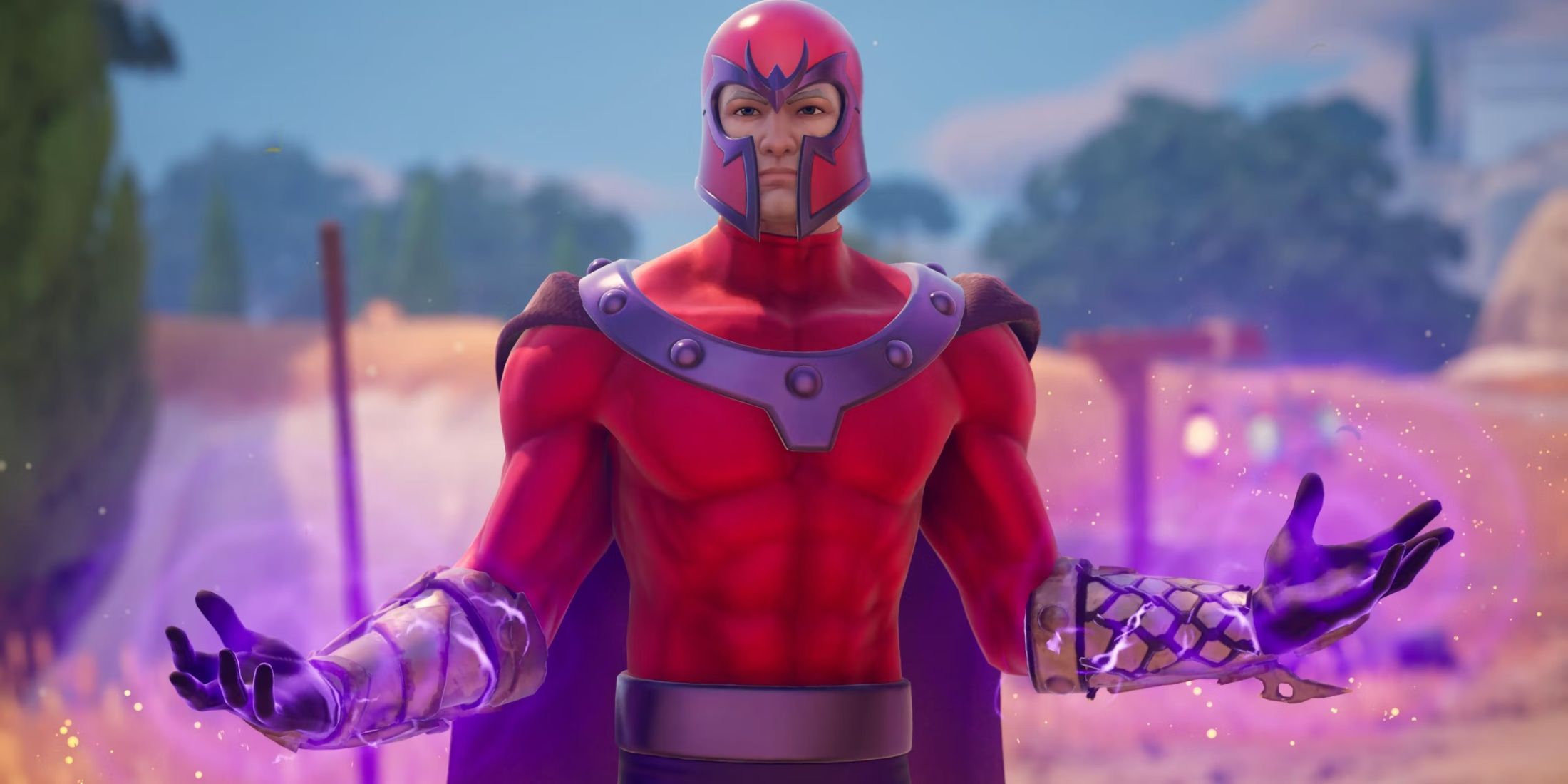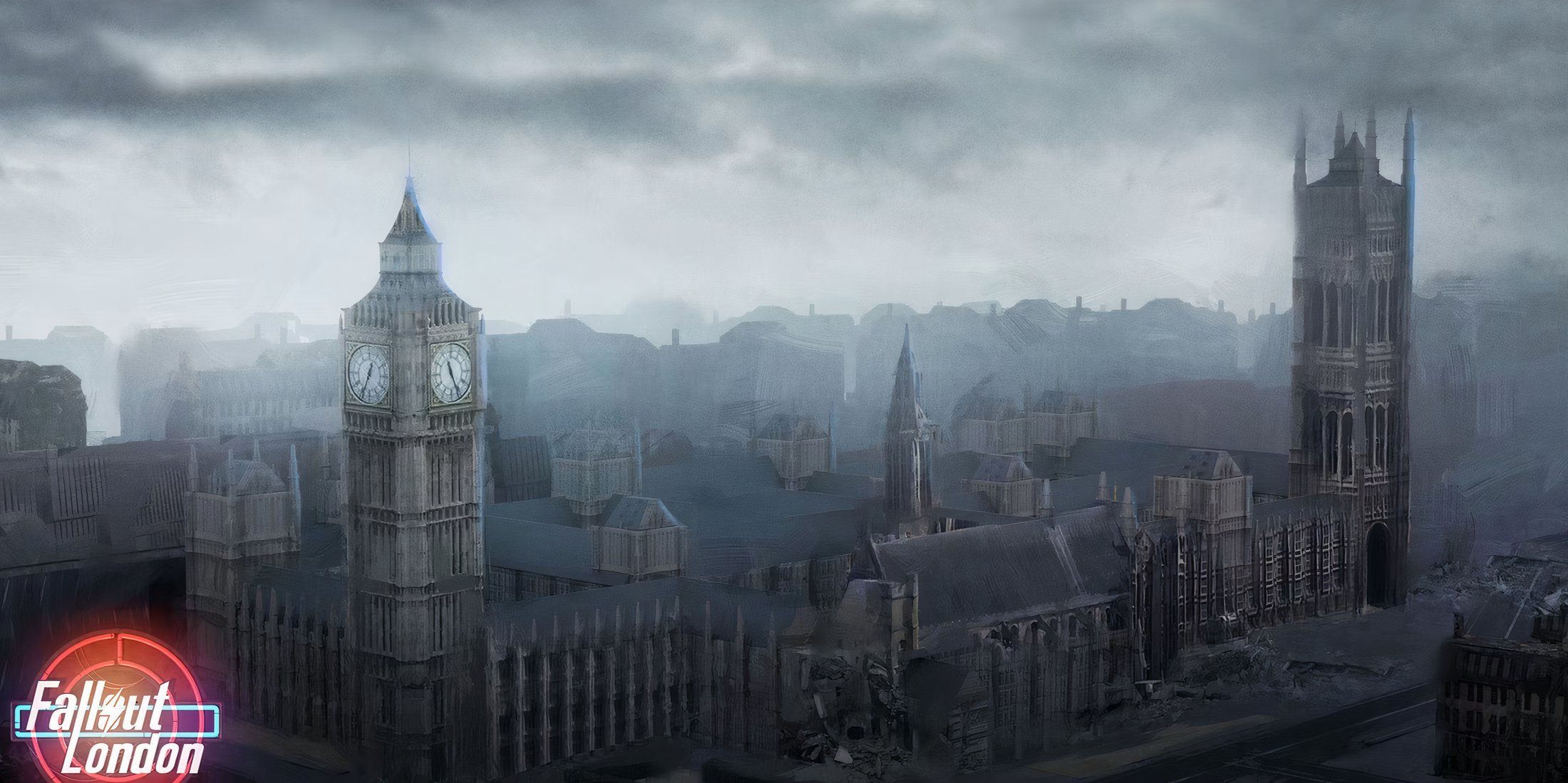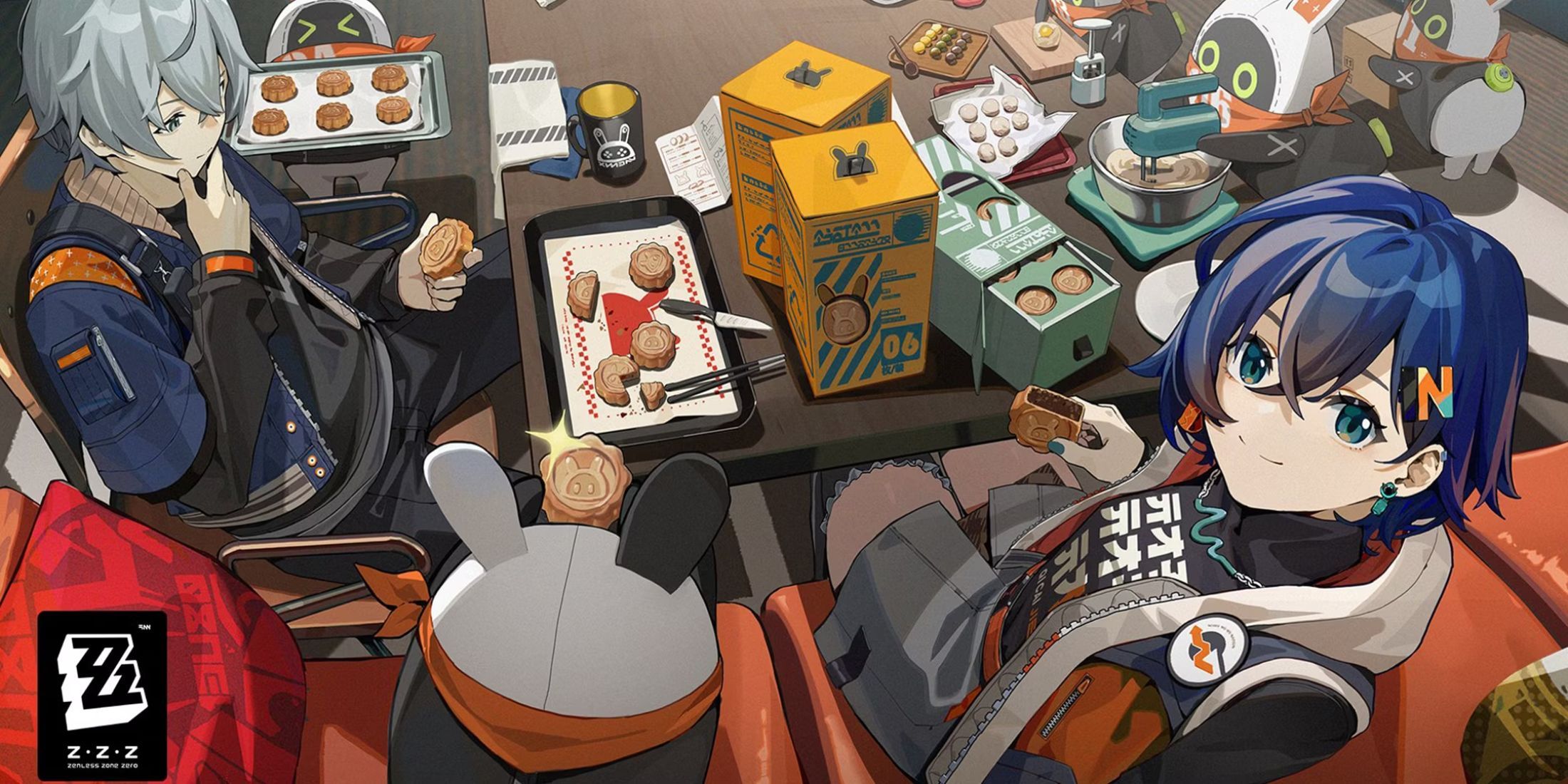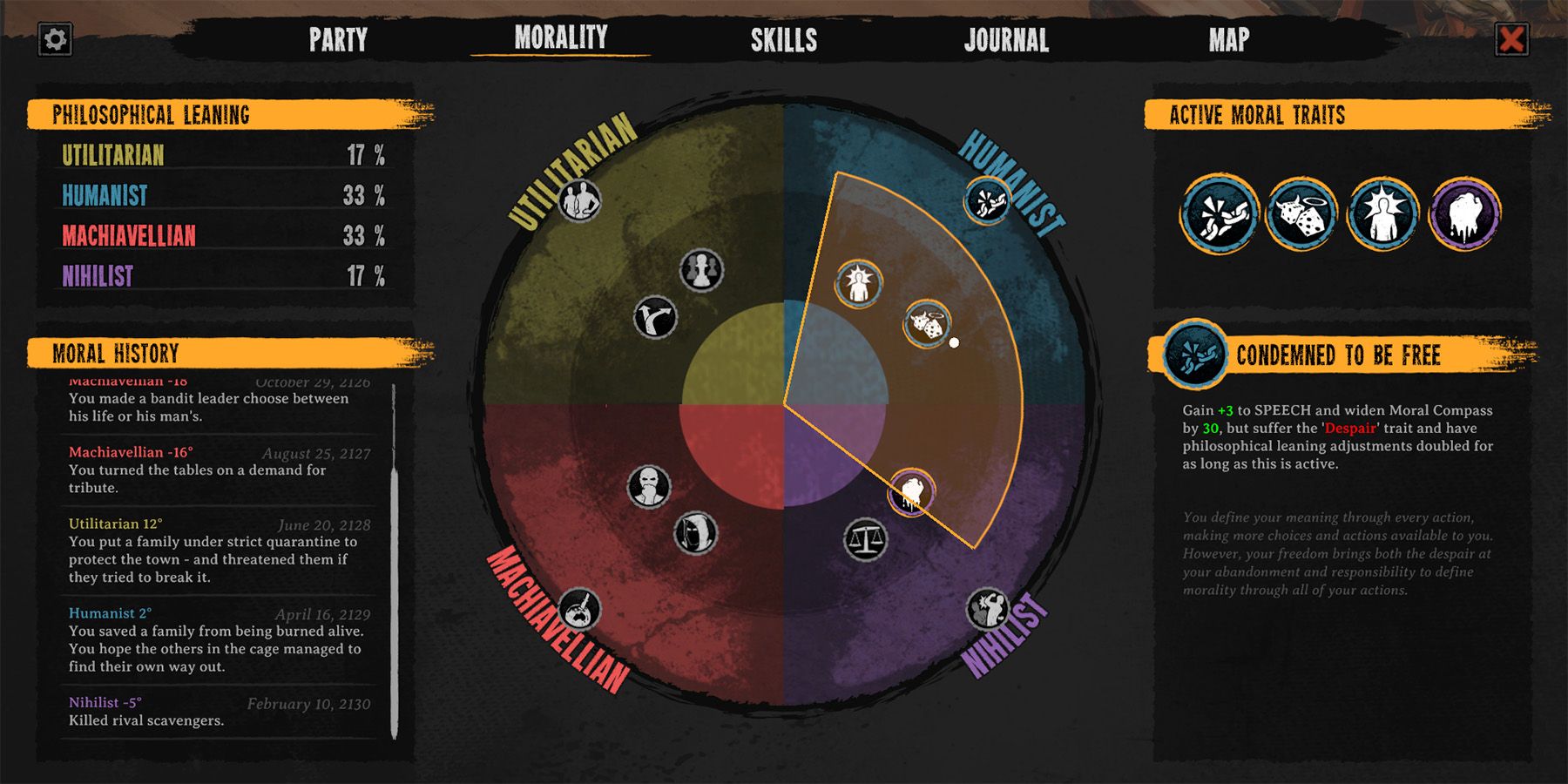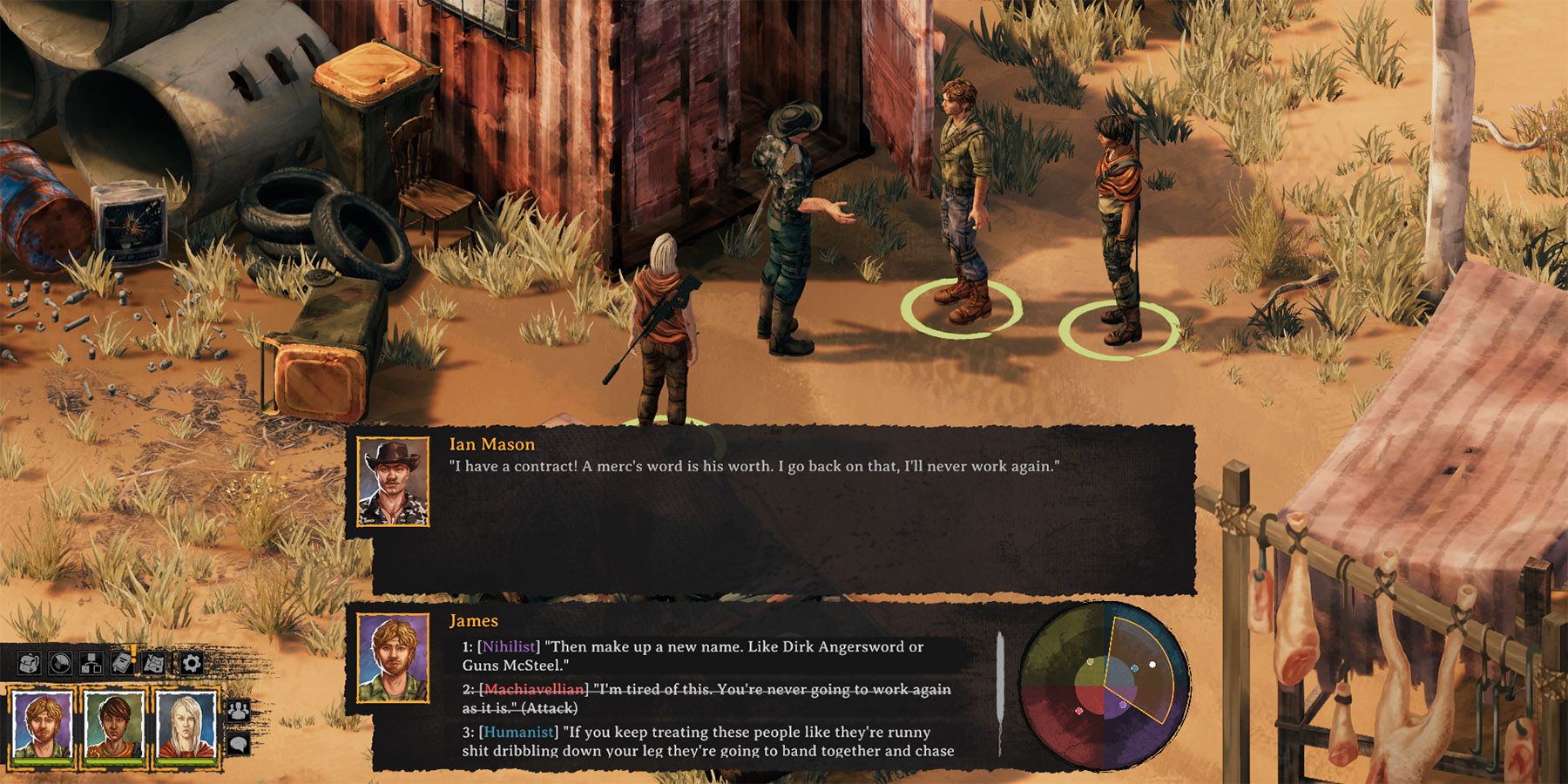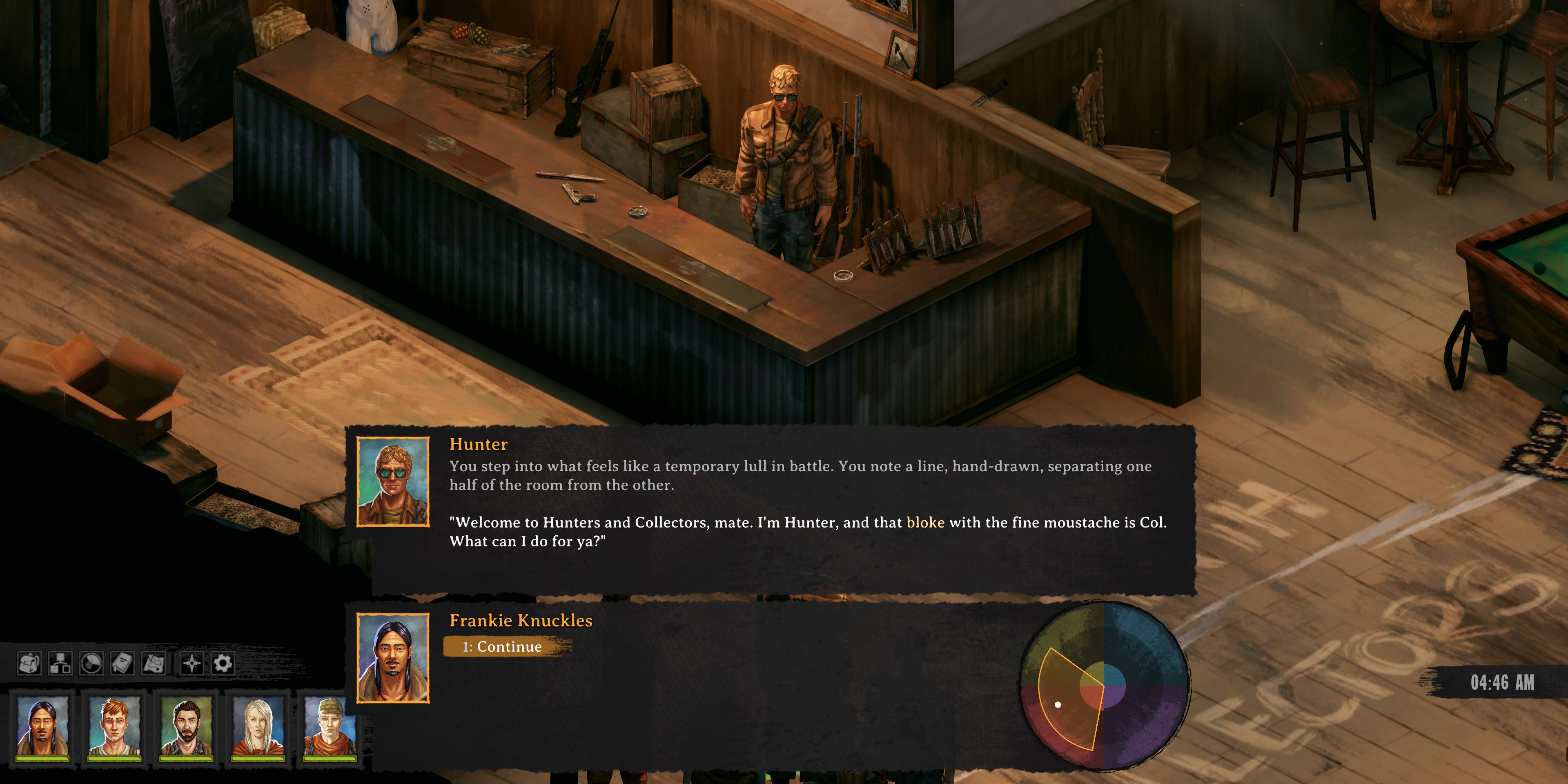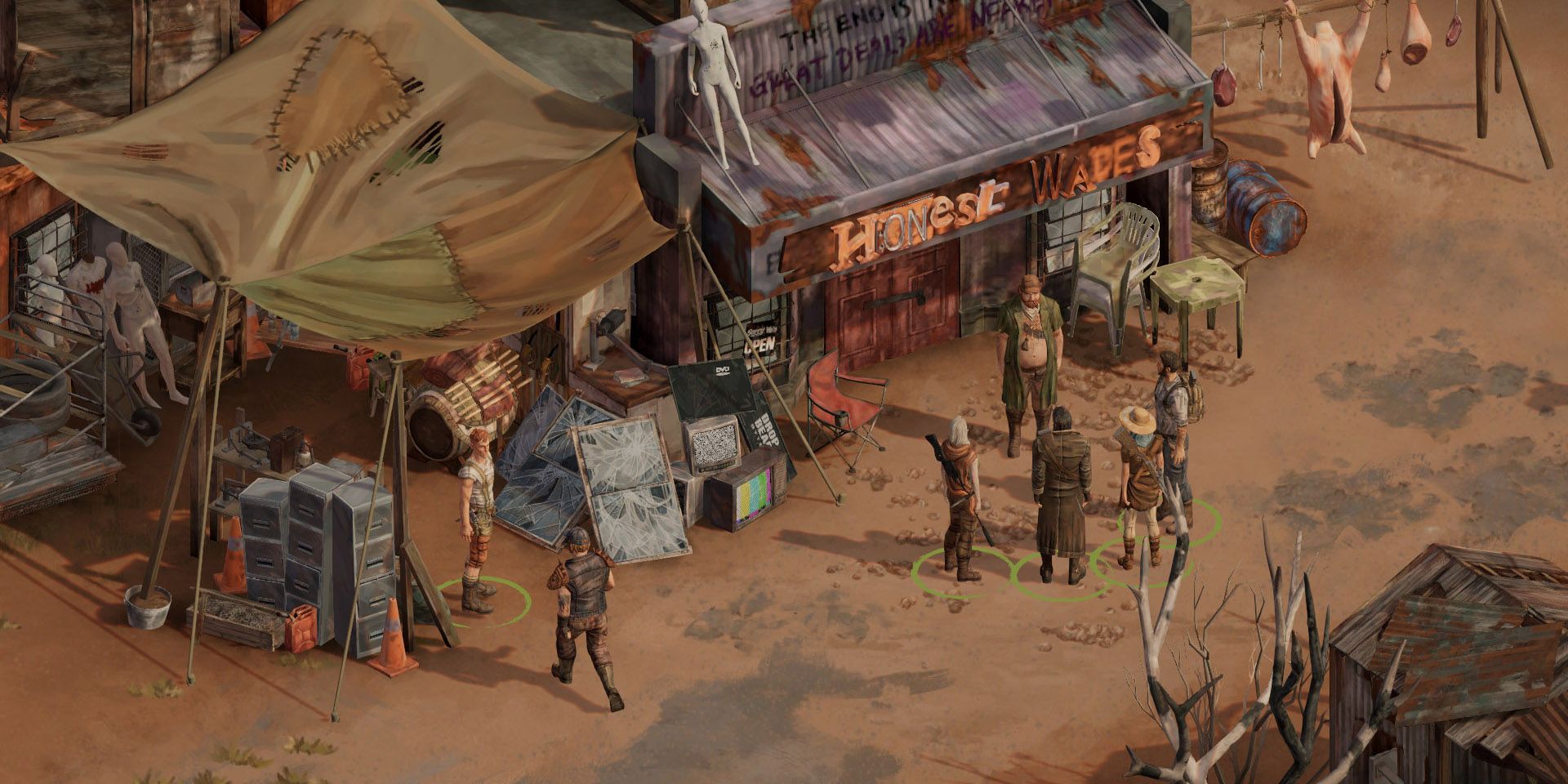Highlights
- The upcoming game Broken Roads introduces a Moral Compass that maps a character's decisions onto four real-world moral philosophies, creating a more realistic and well-rounded character.
- The Moral Compass unlocks dialogue options, ways to navigate the game world, and moral traits as players explore and invest in different moral philosophies.
- The game encourages consistency of character and adds to replayability by allowing players to craft a unique worldview and explore different perspectives and options across multiple playthroughs.
Morality systems are common in narratively rich games, from the black-and-white moral dynamics of Fable to Dungeons and Dragons-style three-by-three alignment charts. A possible new method for this common mechanic comes from Broken Roads, the upcoming post-apocalyptic CRPG from Drop Bear Bytes, with its Moral Compass.
Most moral systems in games measure a few variables and impact some NPC interactions over the course of a game. In Fallout 3 and New Vegas, for instance, the game tracks karma based on certain player choices, like theft or murder. Even when not using a flat notion of good and bad like in Mass Effect, there is still a simple continuum between nice–the paragon–and being a jerk–what the game calls Renegade.
Indie gameBroken Roads takes these systems further than most of its competition. Speaking with Game ZXC, Drop Bear Bytes co-founder Craig Ritchie explained that instead of plotting out morality as a notion of being good or not, their Moral Compass instead takes out the judgment of right and wrong and instead maps a character’s decisions onto one of four real-world moral philosophies.
Ritchie explained that mapping morality onto various philosophies makes a more realistic and well-rounded character than a simple black-and-white moral framework, even if implemented along a gradient. The Moral Compass, instead, tracks morality across a circle made up of four real-world moral philosophies, from center out to edges, using a cone that represents the protagonist’s worldview.
People are not one-dimensional, things are a lot more complex than that, and we don't find ourselves one of nine alignments or somewhere on a binary between good and evil. We are composed of a little bit of this and a little bit of that. If we have something that's kind of spread, it’s over a two-dimensional plane arena represented on a computer screen. But if you have a range of available choices made up of different elements of moral philosophy, that comprises a character's worldview.
Different moral frameworks assess good and bad actions and choices differently, explained Ritchie, so breaking choices down along with what philosophy justifies them is more fulfilling and relies less on the developers of the game creating a single blanket moral framework. In Broken Roads, that means a choice is mapped to one of four philosophies: Utilitarian, Existentialist, Machiavellian, and Nihilist.
Exploring these philosophies on the game’s Moral Compass can unlock dialogue options, ways to navigate the game world, and certain moral traits that act as perks. The game determines what is unlocked for the player by tracking choices and decisions and showing a cone on the Moral Compass that represents a character’s worldview. Decisions can expand or narrow the worldview, but a player is locked out of any options that are too far outside this worldview.
As a player invests more in a certain philosophy, they unlock the ability to use more dramatic expressions of that philosophy in their gameplay. The impact of the Moral Compass extends beyond dialogue choices as well. For instance, focusing on Existentialist choices can grant access to the “Something Terrible or Divine” trait, which increases critical hit damage but also raises the likelihood of critically missing, as an extreme expression of that particular moral philosophy. This makes developing a moral philosophy a part of leveling and progression.
It doesn't just lock you in a particular place. It slowly adjusts and rotates around the Compass, based upon the choices that you make … Within your worldview, the worldview actually gets narrower, but the edge of it extends further out. That golden arc you can see extends further to the outside of the Moral Compass, and you're able to then make more extreme choices. Or if you make decisions all over the place, you become broad-minded.
The way the Moral Compass locks a player into a growing and adapting worldview instead of allowing a more scattershot approach to moral decision-making was inspired by an experience Ritchie had in Star Wars: Knights of the Old Republic, where it's possible for a virtuous Jedi to make a Dark Side choice at the end of the game. This took Ritchie out of the game, as he realized this was such an out-of-character decision to make. This is why, in Broken Roads, a worldview can only change incrementally. This encourages consistency of character, according to Ritchie.
This also adds to the game’s replayability. While Ritchie is well aware that most players will go through a game once and move on to the next title in their backlog, he’s also aware that with deep, choice-filled narrative experiences like Broken Roads, there are gamers who seek out chances to explore the game again and again through different perspectives and options. The game was designed to be as satisfying to those who would play it dozens of times as for those who would play their single Utilitarian Jackaroo playthrough.
The fact that the Moral Compass allows players to craft a worldview across a 360-degree field comprising four moral philosophies, and the importance that worldview has on the game, provides those seeking replayability with another dynamic ripe for exploration across multiple playthroughs. Similarly, it allows for deep and fascinating roleplaying game character builds for those enthusiastic about that kind of gameplay. And, of course, a game this focused on moral philosophy included several pacifist approaches players can explore across their playthroughs.
There are ways to tackle the different objectives and so on that are completely different based on your worldview or the order in which you choose to do certain quests. … The proof is going to be once the world gets its hands on it. You know, the kinds of characters and the kinds of unique stories that people make as they're playing Broken Roads, s o I'm really excited to see what players make of it.
Players are already agonizing over the choices available in the demo, Ritchie explained, at the game’s recent showcase at PAX Australia. The game quickly thrusts players into a difficult situation they have to navigate, and Ritchie said he watched players approach those decisions slowly and with a lot of thought.
Broken Roads releases November 14 for PC, Switch, and Xbox Series X/S.

